#this is how i imagine aaron sorkin writes jokes
Explore tagged Tumblr posts
Photo
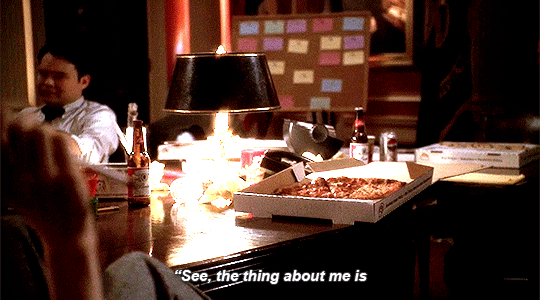

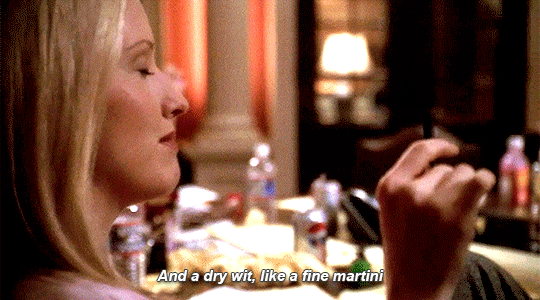
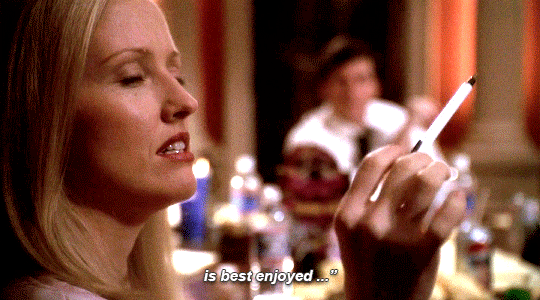
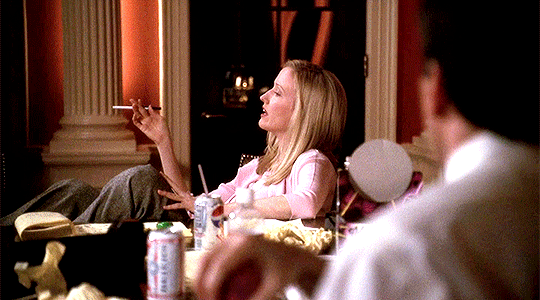
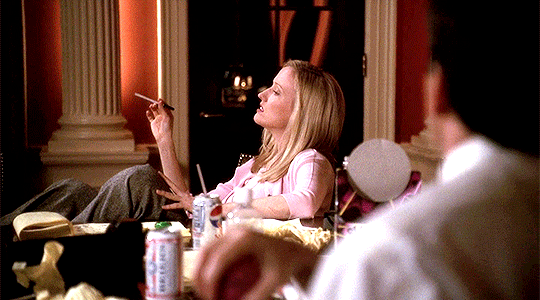
Hey! We need funny people. Yeah? You know any?
#this is how i imagine aaron sorkin writes jokes#which tracks considering he wrote this joke#too meta#the west wing#tww#west wing#donna moss#ed and larry#myedits#twwedit#tww edit#the west wing edit#thewestwingedit
83 notes
·
View notes
Link
I pride myself on creating interesting titles for my articles and blogs. Who could ignore, “Does This Script Make Me Look Fat?“, “S-e-x Tips For Screenwriters,” or “Are You Writing With Beer Goggles On?”
The title is essentially the logline of the column, and I want mine to intrigue you into reading more.
My choice this month is as deliberately colorless as I could muster to make a point. I’ve been reading a lot of dry, dull, and flat dialogue of late.
This is a cautionary tale on how “not good” dialogue can
drag
your
entire
script
down.
Even when you have an exciting and compelling concept and a solid story.
No matter what the genre, bad dialogue flattens the story by undermining the tone. Visceral moments built around dull dialogue, whether they are shocking scares, heart-racing action sequences, thigh-slapping comic moments, or tear-inducing dramas, are akin to a slammed oven door on a rising soufflé. Deflated and disappointing.
Dialogue: Art or Craft?
Before I began this article, I had to think about whether dialogue is a screenwriting skill that can be taught, practiced, and mastered, or whether it is an art. I’ve been fortunate to work with some truly talented writers who had “an ear for dialogue.”
My ultimate decision is that while you can get better at it, like a craft, for the top writers of dialogue – although they work hard at making it outstanding – it is an art. But that doesn’t mean that we can’t learn something from them and use it to grow.
Writers known for their dialogue actively listen. They pay attention to voices, they eavesdrop, they recall patterns, phrases, distinctions, inflections. But great dialogue is not transcribing. It is learning about howpeople talk in the real world and then distilling it into something better that reflects real life rather than imitates it. We’re telling stories, not making documentaries.
Great writers take the everyday and elevate it. Because, in fact, how we talk in “real life” can be wordy, meandering, and damn boring. In a script we are looking for powerful and succinct expression of thoughts and feelings.
Writers known for great dialogue write in voices that they know. Voices that they can hear in their heads, whether it is “smart,” or “Southern,” or “smarmy.” I have had more than one marvelous writer of dialogue tell me that they get to the point where the characters are speaking to them in their heads. Congratulations, you are probably in the only profession where “hearing voices” doesn’t guarantee you will get carted away to the crazy house.
Writers known for great dialogue understand that dialogue must serve a purpose. It must advance the story, reveal character, support the tone, and compliment the pace of the scene.
Writers known for great dialogue know that less is more. Great dialogue is often characterized as “lean.” They avoid lengthy talky scenes, long, uninterrupted monologues, and they leave space for subtext – that which goes unspoken can have the greatest impact.
Writers known for great dialogue know that it has to woo the reader on the page and sound authentic when spoken. Read your work aloud. Have it read. Tape it and play it back. If it “sounds like dialogue,” start rewriting.
Writers known for great dialogue still agonize over every word. Because they want the characters’ intentions to shine through, their personalities to come across, and the nuances of their inflections to be clear to the reader.
In the industry, writers known for great dialogue often come from theatre. Yes, I’m talking about Aaron Sorkin, Alan Ball, and many others. Because on a page of a play there is almost no description. What is there is minimalist. Playwrights learn to tell their entire stories and reveal their characters through dialogue. They are forced to get darn good at it. Might be a good exercise to practice by writing a scene or a short piece that is almost 100% dialogue.
On the other hand, the more I’ve thought about dialogue, the clearer it is to me that dialogue is inextricably interwoven with description. I found that you simply can not talk about one without referencing the other. As you master how to write a screenplay, it becomes clear that the interaction between dialogue and description is like a carefully choreographed dance. A tango that would not be complete without both partners, moving seamlessly together, supporting and elevating each other. That’s where you make the leap from craft to art.
Killer Dialogue
In striving to write dialogue that enlivens your story rather than killing it dead, these are the top crimes to avoid:
Expositional Dialogue: Dialogue that struggles to convey fundamental information to the audience can be deadly dull. In decades past, we might have seen newspaper headlines on the screen. Now we’re often subjected to lengthy (and incredibly conveniently timed) TV news broadcasts that spells out the facts and background. This may be efficient, but it feels like a cheap writing short cut and is inherently dry.
Voice over narration can be useful, but only if there is no other way to show us rather than tell us. This device is best used sparingly and artfully, as an integrated element of the story that reflects the tone.
There should be a rhyme and reason to narration in a script. It should be consistent with the story. Its usage might be heavier in Act One to establish the narrator and their point of view. Sparingly in the second half of Act Two, as the pace and stakes increase. Then wrap up and underscore the theme, provide resolution and add resonance in Act Three.
A large clump of narration in one juncture of the story stands out. It slows the pace and can feel like a crutch for conveying information. The best exposition comes from many sources. Showing is more powerful that telling. We can glean information from vividly described settings. We can see character’s appearance, behavior, actions, body language, and expression in description.
Lean dialogue supports other expositional tools, and description can add subtext that speaks volumes.
OTN Dialogue: Industry shorthand for “on the nose” is far from complimentary. This is dialogue that is literal in conveying what the characters think and feel. I am scared. I am happy. I am hungry. It is stiff and unnatural. Characters who speak in simple declaratory sentences reflect what the writer wants us to know. More skillful dialogue comes from the character and is supported by description.
Doubling Up Dialogue: Dialogue that repeats what we have just learned in description is redundant. Don’t tell us what we already know. It drags down your script and slows the pace of a scene. Be confident that we’ll get it.
Description: Jack acts nervous, worrying about the plans for the big heist. Jack dialogue: “I am very nervous that you are not going to be able to pull this heist off.”
Versus:
Description: Jack paces restlessly, taking a few steps in one direction, then reversing. Jack dialogue: “Tell me you have your shit together.”
The second version is shorter, more visual and more visceral.
Showboat Dialogue: Few things rankle readers more than recherché or Delphic dialogue. While you and I may have an SAT-worthy vocabulary, imagine the frustration of being unable to comprehend a sentence. Or maybe you don’t have to imagine if you were unaware that recherché means rare or exotic and Delphic is deliberately obscure or ambiguous.
The purpose of dialogue – and I see this blunder in description too – is not to show us that you are smart. It is to communicate clearly. I shouldn’t need a dictionary just to grasp a sentence. And if your reader does, then you are throwing off the reading experience, putting a stumbling block in their path when your aim should be for the words to flow in smooth, comprehensible sentences. Your script should communicate clearly to any and all readers.
Dialogue and description that includes obscure literary or musical references may have meaning to you, but unless it is recognizable to your reader, it’s a fail.
Yes, if your character is a brainiac, they might have a great vocabulary. But baffling your reader, even in a story about rocket scientists, should be rare and serve a purpose. Unless it is reflecting a specific character trait, strive for clarity.
The Worst Dialogue Sin: Thou Shalt Not Write Dialogue That Fails To Reflect The Tone. The quickest path to dialogue that makes a script dead on arrival is a failure to reflect the tone – not merely the genre – tone is far more specific. Family comedy, broad comedy, raunchy comedy, dark comedy, and dramedy are just some of the many tonal variations in the catch-all genre of “comedy.”
While your comedy doesn’t require a joke in every sentence, keep your dialogue in line with the tone of the story and of the scene. We think of action dialogue as terse, while character-driven stories are expected to have more dialogue that reflects and reveals character and arc.
Dialogue should also match the pacing of the story and the scene. As conflict escalates, especially in the second half of your script, dialogue should also be tight and brisk to match the pace.
Another cause of flat dialogue is the “repressed” hero. I’ve found that main characters whose core issue involves suppressing their feelings, leads to dryer, clipped dialogue. Fair enough as a character trait, but this often infects the entire script, keeping everything from falling short of being visceral. And in truth, the repressed character should be simmering beneath the surface, with inner conflicts conveyed in description and supported by subtext.
Think of the voice of the story – its unique tone – coming through in every sentence – from description to dialogue.
Praiseworthy Dialogue
How do industry pros describe great dialogue?
Lean, fluent, distinctive to characters, authentic sounding, and enhancing the tone…
All forms of high praise for dialogue.
Here are some ways to earn those accolades:
In N’ Out Dialogue: Sharply written scenes get in late and get out early. No wasted time on greetings and exits. In N’ Out hones in the on the purpose of the scene. Effective scenes both advance the story and reveal character arc.
Jack, John, Jake and Joey Walk Into A Bar: I know that some people go crazy when I imply that professional readers don’t read every single word of your script – but it’s because we shouldn’t have to. We should be able to stop reading character’s names after Act One because their voices are distinctive. It’s more challenging in an ensemble where the characters are highly homogenous, but that makes it all the more important. And a visual difference in the characters’ names makes it even easier for our brains to process, which makes your script flow.
Totes Dated Dude: Strong dialogue reflects the time period and is age appropriate.
Writing for teens can be tough, but the best dialogue avoids the clichés. By the time we read them, they’re already dated. Think of Clueless, written and directed by Amy Heckerling, who was lauded for her teen dialogue. What made it so impressive and appealing was that it was invented, a reflection of teen talk and a step ahead, rather than copying current trends. What is on fleek today is totes dated tomorrow.
On the flip side, period dialogue that is sprinkled with contemporary phrases shows a lack of research and an inattention to detail.
A Picture Is Worth 1000 Words: I read a wonderful article recently (which I would link to here if I could find it!) that showed a page long scene between an arguing man and woman, and then cut the dialogue in half, and in half again, and finally down to just a couple of lines. The more they cut, the more dynamic the scene became. Less words meant more room for subtext conveyed in description. It upped the emotion of the scene with what we saw the characters do rather than what they said. With each cut, the scene became more intense emotionally.
The real power in dialogue is often is what goes unsaid. Less truly is more. And action does speak louder than words. Subtext – conveyed by a character’s expression, gesture, or glance – intensifies the spoken word and underscores the meaning of the moment.
Button Up: Effective scenes have a clear high point and then cut to the next scene. Time and again, writers give us the line with the most impact, whether it’s a comedic punch line, peak conflict, or a big reveal, yet diminish the resonance off the moment by adding a few more lines after. Know the scene’s button and cut out on that for maximum effect.
The Last Word On Dialogue
Great dialogue has a rhythm and flow that becomes the heartbeat of the story. It mirrors the structure of the script. Initially setting the tone, revealing character, and conveying exposition, it goes on to accelerate as the conflicts escalate. It supports the scene in tone and pace. It becomes a vibrant element of the story, working in harmony with description to elevate the entire script.
More articles by Barri Evins
Dialogue Freedom: Getting Away with Writing Lengthy Dialogue
Script Gods Must Die: Writing Dialogue – The Cut Instinct
Script Expert Q&A: Meet Barri Evins of ‘Breaking & Entering’

Download tips on writing stellar dialogue with Karl Iglesias’ on-demand webinar Master Aaron Sorkin’s Dialogue & Scene Techniques
2 notes
·
View notes
Photo
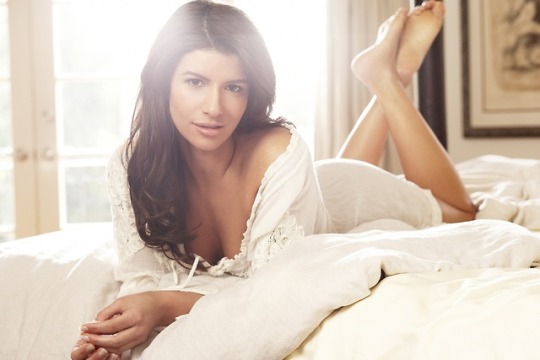
Gina La Piana
Article by Lauren Weigle
Photo by Steve Kay Photography
Gina La Piana is definitely a fierce force of nature. Armed with a gorgeous singing voice, a sultry image, and an amazing acting ability, this woman knows how to work the entertainment circuit. Making appearances on popular shows like Bones, Everybody Hates Chris, The Mentalist, and many others; her main passion is her craft as an actress. Although she loves to sing and has success with it, acting is where her heart truly lies… This is why we’ve taken the time to sit down with her and delve a little deeper into what Gina is truly all about… who she is, where she wants to go with her career, and what she really wants in life.
So, acting and singing. I want to hear about both. How about we start with the singing? Can you tell me a little bit about yourself as an artist?
I consider myself an edgy voice for women, as well as a storyteller. My tendency is to write my music as a journal. I’m most inspired when I’m in relationships, good or bad. I’ve written most of my successful pieces from painful experiences. There was one relationship that is most predominant, which I call the ‘Gray Period’. That’s when I wrote my most popular material. A lot of women can relate to and connect with my "agony' so to speak. (She laughs.) But, that's kind of a universal theme. I get thank you notes from people around the world saying they connected to the themes and messages in the music. It makes me realize just how much “art imitates life” and how we truly want the same things. To be understood, loved, and cherished. I’ve only done original work. I’ve never been a cover song artist. I don’t know how to be. So, a show like American Idol could have never been a platform for me because it’s important to sing what’s in my heart and what sprung from my truth - the good, bad, and the ugly.
Okay, so you thrive on being original. What would you say is your signature aesthetic when it comes to your own music?
I am a divine dichotomy of sorts, in that what I do in the US market tends to be more edgy, pop rock, geared towards films and television, while what I do overseas as "Gina Martina" is darker, sexy electronic dance music. I’ve been called the Jenna Jameson of electronica! (She happily exclaims.) They are all roles for me really, getting to play different characters, and aspects of my personality set to beats.
Well, you’ve been a part of several movie soundtracks. Would you like to talk about some of your contributions in that area?
I love the collaboration involved when working on a soundtrack. I love working in a room full of people where we’re all working towards the same visual-auditory goals. I am a very visual person, so it’s exciting to see a piece of film in front of me, visualizing the story and literally seeing and feeling the music that is poured into the film. It’s moving art. It always comes back to storytelling for me. It’s by far some of my favorite work and I look forward to doing a lot more in the future! I am such a huge fan of guys like Danny Elfman, and Hans Zimmer. What a gift these guys have! To someday be able to work in the same room with them would be a life altering experience for me.
Oh, I’m sure! With just singing or acting as well? Do you prefer acting to singing or are the two pretty equal?
To be completely honest with myself, I’d love to do more acting. Music pays the bills, but my dream is to do series television. In an ideal world, I would meld both of these facets. And maybe run the whole shebang, Sandra Bullock style.
Aside from your life as a performer, what else do you enjoy?
Eating good food, reading a great book, making love, fun with friends, investing in stock, supporting in the Bella Sera Organization, and travel, travel, travel!!! I am also what you call a spa whore…I love to spa!
Do you have much spare time to let loose and indulge in these things… like your Spa fetish?
I have quite a bit of time to myself; it’s how I set my life up. I created and built my own music company so I can let other people do the heavy lifting and I can take the credit, which allows me the space and time to enjoy my life much more.
Let’s talk about your character on Days of Our Lives. How did you first land your role on the soap series?
I went in like any other normal casting. I was hired originally by the lovely Fran Bascom, working at separate times in two smaller characters, (a flight attendant named Daphne and a Nurse called Rosy), whom they found memorable. They eventually brought me in as a more substantial recurring character. Yes, I played three characters in total while on Days of Our Lives.
Wow. So multiple personalities. (I joke.) What else?
I have both good and bad things to say about working on a soap opera. The good: it’s akin to boot camp for actors. You have to learn so much dialogue so quickly. Every day you have pages and pages of text to memorize and you must be spot on! They will not accept anything less. It is like doing theatre on television if that makes sense. You can make far bigger choices than you could normally in either regular TV or film outside of comedy. The bad: I have never worked a job where women were more downright catty and mean.
Wow, that’s horrible. I guess even soap operas have those catty co-workers.
Yeah, I literally was written off my show because a few of the girls I was working with made me miserable. I couldn’t continue to subject myself to that much negative energy. No amount of money on Earth is worth the stress to me, and I sincerely mean that.
Well, soap operas have been such classic constants throughout television history. What are your thoughts on the recent cancellations of the long-running soaps All My Children and One Life to Live?
In my opinion, I think it’s time to move on, because we are living in a different time in history than the era they debuted in. I mean no disrespect, but these shows have been around since way before I was a gleam in my Father's eye, and we have since progressed in our outlook of entertainment. Viewers are much more sophisticated and looking for more cohesive story lines.
I got ya. Okay, I’m going to take my cue from you and move on as well. (I laugh.) Since your days as Gabby Ortiz and even before then, you’ve made appearances on so many popular television shows. Any memorable ones that stick out in your mind?
Hands down, my favorite experience was on Studio 60. I got to combine my 3 strengths. I scored the episode, sang 2 of my original songs on stage, and acted opposite Matthew Perry, and all the while working for the brilliant and gifted Aaron Sorkin. Not to mention, I was directed by the ingenious Tommy Schlamme. That job just couldn’t have gotten any better!
Okay, tell me about your most recent project Audrey. What’s the story?
Audrey is a very unique and very funny female-driven comedy. Taking place in real-time, the story takes us through a little over an hour and a half of a young woman's day as she waits and waits and waits in a restaurant for Gene, her date, to arrive for their critical third date. As the clock ticks away and Gene is nowhere to be found, 34-year-old Audrey is swept up into a journey through her life as her insecurities and inner demons comically wreak havoc on her. Forced to face her deepest fears by circumstance — both real and unreal —Audrey finds the strength and courage she never imagined she had.
I understand you produced the film? What made you cross over from actress to producer?
I realized things were changing in the film industry. More and more celebrities are taking on Television roles, which leaves less work for newer or up and coming actors. I felt I needed to create more vehicles for myself if I want to work in this business. I like to be in control of my career and not just sit around waiting for the next audition to come. I wanted to create more vehicles and opportunities to show my strengths. Hence, I'm playing the quirky impassioned best friend to "Audrey".
What first drew you to the project?
A friend whom I deeply respect and admired brought the project to me. He was very excited about it, so I came on board.
Well, that’s simple enough. Any other projects coming up that we should know about?
I’m producing and starring in a film that I wrote called Brit and Brazil. It’s an independent drama-comedy feature that will give me the opportunity to play a grittier character who turns things around in her life. I’m most inspired by these types of stories, the underdog, who eventually triumphs and succeeds. I’m also producing two artists signed to Warner Bros., ages 13 and 15. The albums couldn’t be more different - One is a rock-electronic record and the other is in the urban-hip hop genre. I like to keep it crazy, the nuttier the better in my opinion. Colorful is key!
0 notes